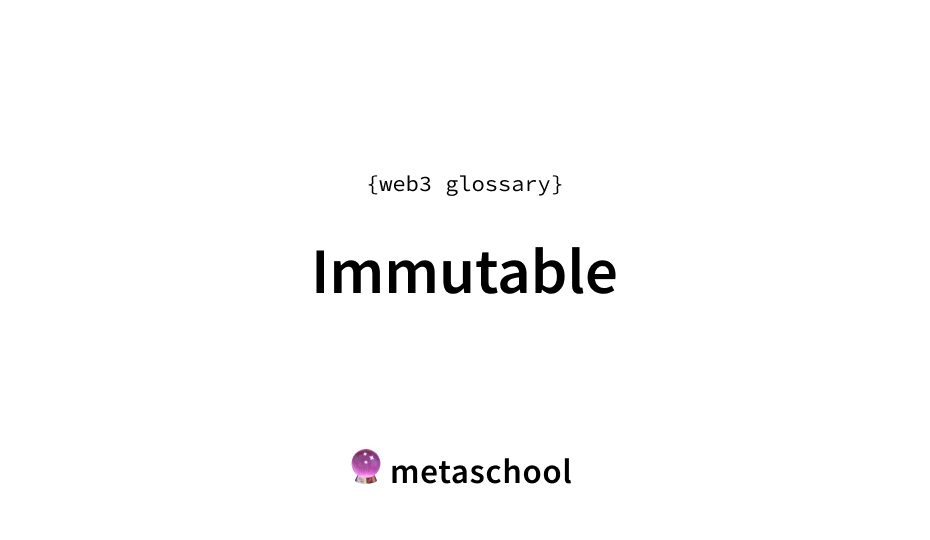Table of Contents
What does immutable mean? 📖
Immutable can be referred to as the ability of something to not be changed and altered. It’s derived from the Latin word immutabillis.
The term is used in several areas, like functional and object-oriented programming where an object is considered immutable when its state can not be changed after it was created.
Similarly, it also exists in blockchain technology. In fact, it is one of the most important features of the technology where a blockchain ledger is unable to be manipulated.
How immutability in crypto works
Immutability in the blockchain is achieved by cryptographic hashes which cannot be reverse-engineered. The most famous hash function is Secure Hash Algorithm 256 (SHA-256).
SHA-256 is one of the first hashing algorithms that Bitcoin, Bitcoin SV, and Bitcoin Cash use.
📖Important Read: Complete Guide to Hashing in Blockchain
In public blockchains, immutability doesn’t just enhance the trust and audit system but also makes it much more effective and simpler by reducing the cost and time required in auditing.
Immutability is also able to provide clarity to different stakeholders as it provides a shared source of truth that can be verified.
Benefits of blockchain immutability
While immutability is an interesting and beneficial feature as a whole, here are some specific benefits that actually add value to the blockchain ecosystem.
- Increased security: Security is perhaps the most fundamental benefit of immutability. Immutability ensures that the transactions’ data are secure, and more immune from getting hacked.
- Makes data tracking easy: Immutability in a blockchain is like a contract that states that whatever data is fed into the blockchain will not be altered or tampered with. This gives a sense of relief to users and developers alike. Moreover, this makes tracking data an easy process.
- No more blame games: One of the greatest benefits of blockchain immutability is that it leaves no room for disputes. Even if a dispute is filed within a blockchain’s management, the fact that all records are immutable makes all the disputes settle immediately. Think about the costs that immutability alone is reducing. Be it lawyers, litigation experts, courts, etc. it is all covered with immutability.
Threats to blockchain immutability
However, there are concerns around immutability as well in different blockchains.
Other than extra rigidity in decision-making, the main challenge is a certain type of attack which is:
The 51% Attack: If a miner is able to get control of the majority of the blockchain network and alters the immutable data, it can suffer from a 51% attack.
Okay, but how can immutable data be altered?
Okay, so complete immutability is more or less a myth in crypto. This is because, in certain circumstances, immutability can be broken. 51% is one such example. Thus, when a miner owns 51% of the blocks, he/she can rewrite the transaction history. In fact, a 51% attack on a blockchain would cost around $752,000 for 1 hour.
How to save immutability from being negatively affected?
The Ethereum Proof-of-Stake consensus mechanism is considered to be the solution to this attack because it involves validators and not miners.
Moreover, in the Proof-of-Work consensus mechanism, each block is supposed to be solved within 10 minutes. If miners are taking less time, the difficulty level shall grow. Thus, the difficulty level of verifying a block can also help remove the threat of a potential 51% attack.
Ethereum founder on immutability
The founder of the Ethereum Blockchain, when discussing that immutability can not depend on anyone, said:
Vitalik Buterin
If a blockchain’s immutability depends on me (or core devs in general) just deciding out of the kindness of our hearts to not do things that are eminently practical, then that’s not a very immutable blockchain
A blockchain ledger and its function is the best practical example around to understand the term.
